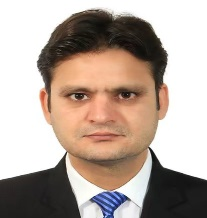Keynote Speaker

Prof. Innocent Kamwa
Laval University, Canada
A full professor in Electrical and Computer Engineering and Tier 1 Canada Research Chair in Decentralized Sustainable Electricity Grids for Smart Communities at Laval University since September 2020, Dr. Kamwa was previously a researcher at Hydro-Québec's Research Institute (IREQ), where for three decades, he specialized in the dynamic performance and control of power systems from a utility perspective. Prior to his retirement from Hydro-Quebec, he was successively, Chief scientist for the Smart grid Innovation Program, Acting Scientific Director and Head of Power system and Mathematics, responsible for the Hydro-Quebec Network Simulation Centre. He was an Adjunct Associate professor at McGill University and Laval University (1991-2020) and the Product Owner and Developer of three widely used power systems simulation tools, namely EMTP, SimpowerSystems and Hypersim, commercialized by EMP-Alliance, Mathworks and OPAL-RT, respectively.
Dr. Kamwa received a PhD in Electrical Engineering in 1989 from Laval University, and became a 2005 IEEE Fellow for "contributions to synchronous machines identification and innovations in power grid control". He is both the 2019 IEEE Charles Proteus Steinmetz Technical Field Award , “For sustained leadership in the development of standards for electrical machines”, and the 2019 Charles Concordia Power System Engineering Award, “For contributions in enhancing power grid performance by novel measurement devices, identification techniques, and stability control systems”. He is also a recipient of four IEEE PES best paper prize awards (1998, 2003, 2009, 2012, 2022), and four IEEE PES outstanding working group awards (1998, 2006, 2011, 2013). He is a member of Canada Academy of Engineering and International Member of US National Academy of Engineering “For contributions to adaptive power grid control schemes and synchronous generator testing and standards.”
Title: Progress in Cyber Security for PMU Data Communications
Abstract: Phasor Measurement Units (PMUs) are crucial components for monitoring the operational conditions of smart grids. As the PMU communication network often spans a wide area, it is susceptible to cyber-attacks. The current communication standard for PMU communication, IEEE C37.118.2, lacks explicit security measures to defend PMU data against cyber threats. The absence of robust security measures leaves the PMU communication network vulnerable to potential disruptions. A compromise in the integrity of transmitted PMU data can have severe consequences, such as grid outages. To address these challenges, this presentation aims at a comprehensive review of existing literature on cyber security enhancements for PMU communications. The review focuses on identifying vulnerabilities and potential threats to PMU systems and explores various techniques and strategies proposed to mitigate these risks. Topics covered include secure communication protocols, intrusion detection systems, encryption algorithms, authentication mechanisms, and anomaly detection techniques. By providing an overview of the current state of research, the presenter aims to highlight the importance of securing PMU communications and identify future directions for enhancing cyber security in this domain.

Prof. Simon X. Yang
University of Guelph, Canada
Prof. Simon X. Yang received the B.Sc. degree in engineering physics from Beijing University, China in 1987, the first of two M.Sc. degrees in biophysics from Chinese Academy of Sciences, Beijing, China in 1990, the second M.Sc. degree in electrical engineering from the University of Houston, USA in 1996, and the Ph.D. degree in electrical and computer engineering from the University of Alberta, Edmonton, Canada in 1999. Prof. Yang joined the School of Engineering at the University of Guelph, Canada in 1999. Currently he is a Professor and the Head of the Advanced Robotics & Intelligent Systems (ARIS) Laboratory at the University of Guelph in Canada.
Prof. Yang has diversified research expertise. His research interests include robotics, intelligent systems, control systems, sensors and multi-sensor fusion, wireless sensor networks, intelligent communication, intelligent transportation, machine learning, and computational neuroscience. Prof. Yang he has been very active in professional activities. Prof. Yang serves as the Editor-in-Chief of International Journal of Robotics and Automation, and an Associate Editor of IEEE Transactions on Cybernetics, IEEE Transactions on Artificial Intelligence, and several other journals. He has involved in the organization of many international conferences.
Title: Intelligent Sensing, Multi-Sensor Fusion and Decision Making.

Prof. Prashant Mhaskar
McMaster University , Canada
Prashant Mhaskar is a professor in the department of Chemical Engineering at McMaster University. His research interests include nonlinear model predictive control and fault tolerant control and data driven batch process modeling and control. Research results from Dr. Mhaskar have resulted in over 140 journal articles, and two monographs. He enjoys teaching, mentoring and learning from his HQP and has supervised 2 PDFs, 16 Phd, 11 MASc and over 50 undergraduates students so far and currently works with 1 PDF, 9 Phd, 4 Masters and 4 undergraduate students. His research on data driven (and hybrid model based) control has been fueled by and developed in collaboration with industrial partners such as Johnson Controls Inc., Praxair Inc., Hydromantis, Sartorius Inc., Corning Inc., Imperial Oil and Honeywell. Over his career he held the Canada Research Chair in Nonlinear and Fault-Tolerant Control and the McMaster University Scholar award. He was awarded the D.G. Fisher award in 2022. He has served on and chaired the discovery grant committee in the past and presently serves as an Associate Editor for Automatica.
Title: A Practical Reinforecment Learning Based Model Predictive Control Design.
Abstract: Reinforcement learning (RL) shows promising potential for process control applications, and is of interest to the industrial sector. In many practical situations, a limited amount of information (step-test data) is available to develop an optimal control strategy, such as dynamic matrix control (DMC), one of the most popular methods of model predictive control (MPC). Utilization of MPC techniques to warm start RL implementations have remained limited. The talk will present recent advances in the area of practically implementable Reinforcement Learning Agent based control designs.

Prof. Dr. Zewen Li
East China Jiaotong University, China
Zewen Li was awarded the title of Doctor, Professor, and Doctoral Supervisor. He is currently the Dean of the School of Electrical and Automation Engineering at East China Jiao Tong University, a professor and doctoral advisor at East China Jiao Tong University and Changsha University of Technology. He is also the inductee of National Hundred and Ten Million Talents Project, Outstanding Young and middle-aged Experts, Introduction and Training of Innovative and Entrepreneurial High Level Talents in Jiangxi Province, the Distinguished Professor of Hunan Furong Scholar , 121 Innovation Talent Training Project in Hunan Province, Outstanding Youth in Hunan Province, Young core Teachers in Hunan Province, Head of Science and Technology Innovation Talent Plan Science and Technology Innovation Team in Hunan Province , and Core Member of National University Huang Danian Style Teacher Team.
He presided over 10 national and provincial level scientific research projects, over 20 engineering projects, and published 2 monographs and over 100 academic papers, including more than 30 SCI searches and more than 30 authorized invention patents. Li won many awards for his numerous academic and research achievements, such as the first prize in Hunan Provincial Science and Technology Progress Award, the gold prize at the Geneva International Invention Exhibition, Second prize in the Invention Award for Innovation and Entrepreneurship, one third prize in Science and Technology Award of China Electrical Engineering Society, and one outstanding Chinese patent award.
He has won 12 provincial-level science and technology awards, including one second prize of National Technology Invention Award, the first prize of Xinjiang Uygur Autonomous Region Science and Technology Progress Award, Hunan Provincial Technology Invention Award, and Hunan Provincial Science and Technology Progress Award, the First Prize of China Industry University Research Cooperation Innovation Achievement, Hunan Province Science and Technology Innovation Team Award, First Prize of China Machinery Industry Science and Technology , First Prize of Science and Technology in China Electrical Engineering Society, First Prize of Hubei Province Technology Invention , Second Prize of China Electric Power Science and Technology , Second Prize of Ministry of Education Technology Invention , and the 11th China Patent Excellence Award.

Assoc. RF Zhou Yu
Sichuan University, China
Dr. Zhou Yu, Associate Researcher, School of Electrical Engineering, Sichuan University
·Associate Researcher/Master's Supervisor
·Inductee for the Tianfu Emei Plan in Sichuan Province
·Registered Electrical Engineer (Power Supply and Distribution)
·IEEE Senior Member
·Leader of the Advanced Clean Energy Power Generation and Consumption Project Team
Major: Electrical Engineering
Direction: Clean energy power generation and grid connection, power electronics and power transmission, permanent magnet motor design
Educational background
·2012.3-2015.12 Doctorate in Electrical Engineering, Naval University of Engineering,PLA
·2007.9- 2009.12 Master's degree in Electrical Engineering from Naval University of Engineering
·2001.9-2005.6 Bachelor's degree at Naval University of Engineering
Work experience
·From November 2021 to present, Associate Researcher, School of Electrical Engineering, Sichuan University
·2016.1-2020.7 Naval Engineering University

Dr. Muhammad Ibrar
Shenyang Normal University, China
Muhammad Ibrar is a faculty member at Software College, Shenyang Normal University in China, who delves into the exciting fields of Software Engineering, Management Information Systems, IT Education in Society, Knowledge and Management, Public Policy Management, China-Pakistan Economic Corridor (CPEC) Transportation, Emerging Technologies, Cyber Security, and Policy-making. He brings a wealth of experience from his previous faculty positions at the Government Postgraduate College Dargai Malakand and the University of Swabi, as well as his time as a tutor at Allama Iqbal Open University in Pakistan. He has published more than 50 articles in Scientific Journals and Conference Proceedings. Currently, he is also making significant contributions as a faculty member/Research Associate at Ilma University in Karachi, Pakistan, where he is passionately pursuing his research interests remotely.
Speech title: Students' Attitudes Play a Mediating Role in Determining Their Intentions to Use Online Learning Platforms.

Dr. Shahid Karim
Harbin Institute of Technology, China
Shahid Karim received his BS degree in Electronics from Comsats Institute of Information Technology, Abbottabad, Pakistan, and his MS degree in electronics and information engineering from Xi’an Jiaotong University, China, in 2010 and 2015, respectively. He completed his PhD at the Department of Information and Communication Engineering, Harbin Institute of Technology (HIT), China in 2019. He has published more than 50 articles in core conferences and journals. His current research interests include robotics, artificial intelligence, computer vision, and multidimensional imagery.
Speech title: Demonstration.


Dr. Faisal Mehmood
Peking university, China
Faisal Mehmood received his PhD in control theory and control engineering from the Department of Automation, School of Electronics and Computer Science, University of Science and Technology of China (USTC), China, in 2019. Currently, he is a postdoc fellow at Peking university, Shenzhen graduate school, China. His current research interests include software engineering, networks safety and security, blockchain technology, and software testing techniques.
Speech title: Consent management system based on user data security and privacy using Hyperledger Fabric Blockchain.
